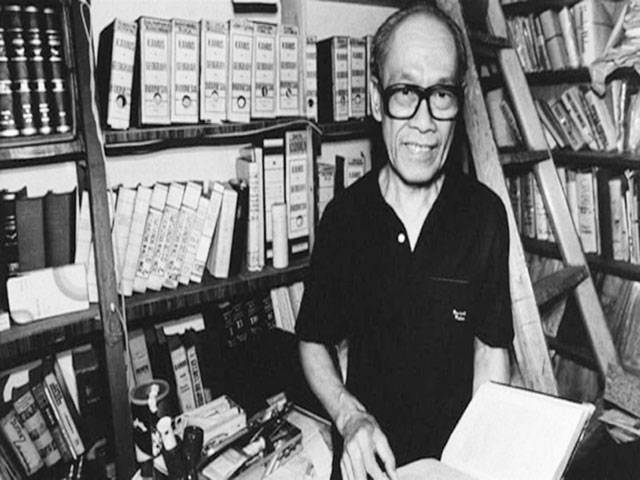“Each injustice has to be fought against, even if it’s only in one’s heart – and I did fight.”
–Pramoedya Ananta Toer
Pram photographed in his Jakarta home. Even after his release from prison, he was kept under house arrest.
P
ramoedya Ananta Toer was born on Feburary 6, 1925, in the Javanese town of Blora. He is widely regarded as Indonesia’s best writer. At a young age, Pram joined the anti-colonial struggle against Japan during World War II and later enlisted in an army to fight Dutch colonialists. The Dutch authorities jailed him for his political convictions and actions in 1947. It was during his years in incarceration that he began writing a novel “The Fugitive”. The novel is one of his best works and some critics compare him for “The Fugitive” with Albert Camus of “The Stranger”.
Pram dedicated all his life to his country through his work. Pram spent most of his adult life in jail, imprisoned first by colonial powers and later by successive Indonesian governments. However, the most difficult days were yet to be started. And these days did come, as military dictator Suharto overthrew Soekarno’s nationalist government. Pram too was jailed on the remote islands of Buru. There, he used to tell stories to his fellow prisoners to keep their morale high. These stories proved instrumental in his much-celebrated work the Buru quartet, which investigated the birth of nationalism in Indonesia.
Pram died in Jakarta on April 30, 2006 at age 81. Though some of his books are still banned in Indonesia, authors like Eka Kurniawan and Itan Paramaditha are redefining the horizon of Indonesian literature under the influence of Pram. It can be said, that Pram laid the foundations of modern Indonesian literature.






